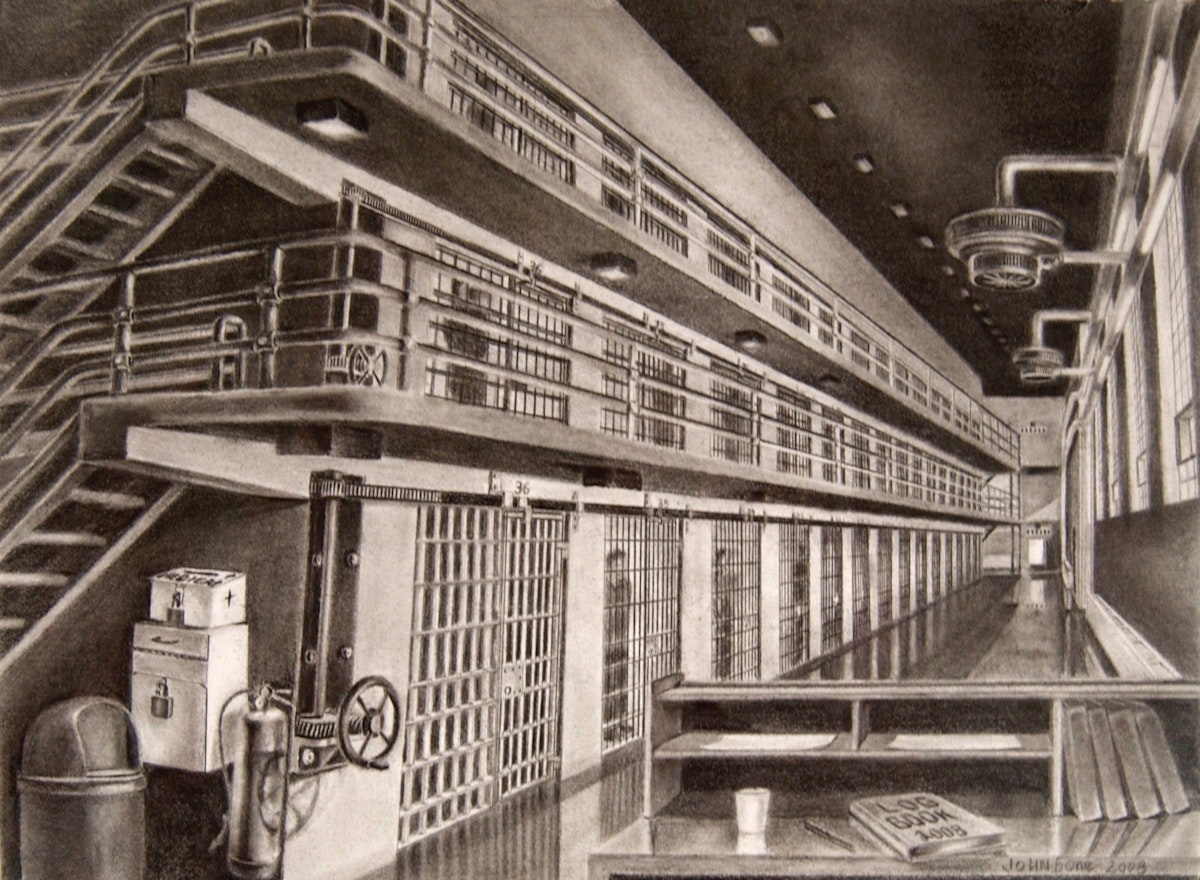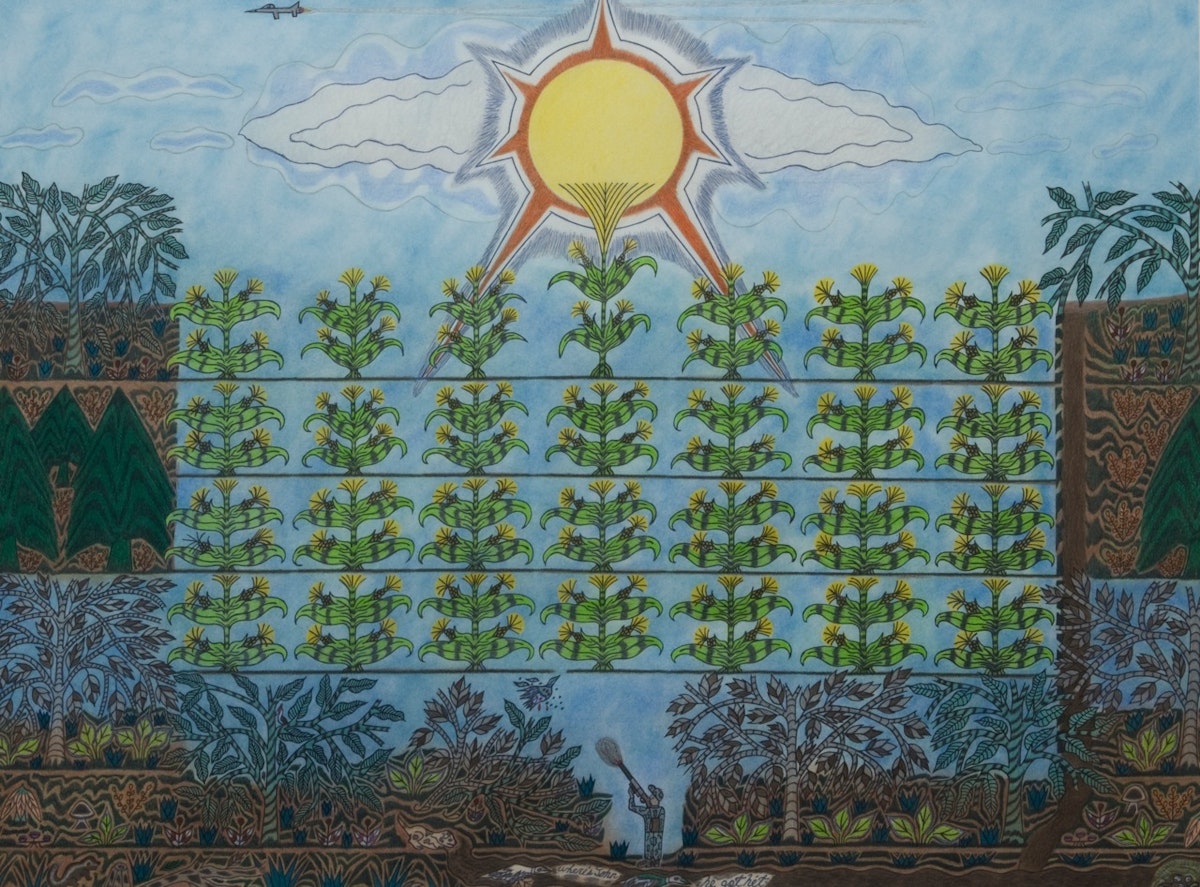U-M Professors Celebrate 20th Anniversary of the Annual Exhibition of Art by Michigan Prisoners
For the past 20 years, U-M professors Janie Paul (Stamps School of Art & Design) and Buzz Alexander (LSA) have traveled to more than 30 prisons across the state to collect art for the Annual Exhibition of Art by Michigan Prisoners. From 442 visitors in 1996, to 4,000 last year, the exhibit has grown into a phenomenon that has changed the lives of hundreds of incarcerated citizens in Michigan. This year, as they celebrate the 20th anniversary of the annual exhibit, the university will be honoring the couple with a Lifetime Achievement Award.
20th Annual Exhibition of Art by Michigan Prisoners
Exhibition Dates: March 25 - April 8, 2015
Opening Reception: Wednesday, March 25th, 7pm
Duderstadt Gallery, University of Michigan North Campus
Gallery hours: Tuesday - Saturday, 10 am - 7 pm; Sunday - Monday, 12 pm - 6 pm
Q&A With Curator and Stamps Professor, Janie Paul
Your first exhibit was in 1996. What’s changed since then?
20 years ago, we founded our prison work on basic human principles: respect for each individual, belief in their potential, and belief that change is possible. Most importantly, we believed that each person is more than the worst thing that they have done. So one thing is – we’ve witnessed proof that these principles work.
For most artists in prison, developing an art practice is concurrent with deep changes in themselves as human beings. We have heard and seen over and over again, how, as their art practice deepens and develops, they become more self confident, more at peace and more generous.
And, another thing is that the number of artists has grown tremendously over the last 20 years. The culture of art is strong in Michigan prisons. And it’s not just among the artists. I think art practice has also become well respected by fellow prisoners and by prison administrators.

People often think of art making as a very individual activity, yet you have spoken of this work as a community-building project.
Everything we do is based on building relationships with the artists and with the prison administrators we work with. We build community by being as inclusive as possible and by maintaining contact throughout the year. Buzz and I have built relationships with people who have been in the show 20, 15, 10 years. We are inspired and in awe of people who have maintained their spirit and their dignity through 30 or 40 years of imprisonment. In turn, I think they are inspired by our consistency and the hard work we do on their behalf. It’s a deep commitment we have made over many years. It’s this relationship that accounts for the power and impact of the project, I think.
Community is something that happens within the prisons as well. We’ve watched communities of artists form, with more experienced artists mentoring the less experienced. Some have even been able to start their own art classes inside.
There’s also this incredible network of students, community volunteers and ex-prisoners that have evolved with PCAP (The Prison Creative Arts Project) over the years. The work alters people’s lives, whether they’re inside or outside.
This year is also the 25th anniversary of PCAP. We will be having PCAP alumni from all over the country coming in, to celebrate and commemorate the anniversary of this work. It’s very meaningful for us.

As you reflect on the impact of the prison arts work, what stands out the most?
The one on one contact we have with the artists. For those moments during our visits, while we talk intensely, giving specific artistic feedback on their work, there’s a mutual understanding and appreciation of one another. It’s a strange juxtaposition – we feel the power and excitement of growth and new artistic possibilities, amidst the backdrop of confinement and limitation that is the structure of prison life. Creatively it’s very fertile territory, actually.
Janie Paul is a painter, community-based artist and educator whose primary focus is the capacity of visual meaning-creation as a vehicle for social change. She is currently working on a book about Prison Art.
Buzz Alexander is an award-winning educator and author and Founder and member of the Prison Creative Arts Project (PCAP), which fosters the creation of original work in the arts in Michigan correctional facilities, juvenile facilities, urban high schools, and communities across the state. He is the author of Is William Martinez Not Our Brother? Twenty Years of the Prison Creative Arts Project.
Janie Paul is available to speak with journalists.
Contact: Katherine Weider-Roos, 734-764-7314, or Sydney Hawkins, 734-615-8765.